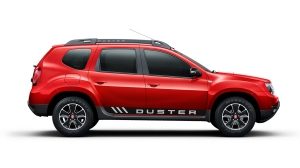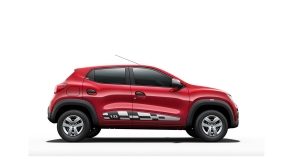From track to the road
Mechanical excellence for all
Whenever Renault enters a competition, the winning technologies are applied to production vehicles. Your Renault car benefits from improved performance, reliability and efficiency.
Driving pleasure
In Formula 1, the most important thing is performance. When it comes to production engines, this performance needs to be linked to driving pleasure. Our production engineers, some of whom previously worked in the F1 labs, have therefore created “downsized” engines that maximise energy output. The challenge is to reduce the engine size –that's the downsizing–sometimes even removing a cylinder, while maintaining or increasing the engine’s power and torque with superchargers and turbo-compressors. It is in this way that the new energy engines have almost all gained between 10 and 20 Nm compared to their predecessors, leading to a driving experience based on driver’s pleasure, pure dynamism, revving the engine, liveliness and responsiveness.
Quality and durability
From its F1 team to its production teams, Renault demands the best in order to guarantee the quality and durability of its engines, no matter if they’re Formula 1 or production models. The engineers that have come out of the Formula 1 labs have guided the development of new petrol and diesel production engines, while also sharing their design methods and digital calculation tools for simulating engine durability.
Low running cost
In Formula 1, weight is the number one enemy. Getting the most out of each drop of fuel allows you to keep less of it on board, resulting in a vehicle that is lighter and therefore faster on the track. This philosophy is applied in our latest generation of energy engines as well, as they use less fuel and produce less CO2, up to 25% lower depending on the engine.
F1 expertise improves Renault's mechinical range
Energy Engines
The Energy family of engines derives from Renault’s F1® technological expertise and is loaded with capabilities, never before seen from engines this size.
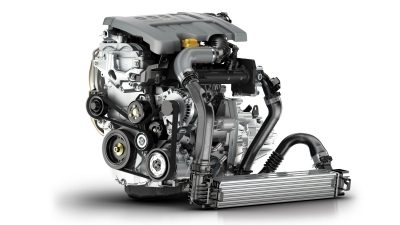
Energy TCe 130
With a power output of 130hp at 5,000rpm and peak torque of 205 Nm at as low as 2,000rpm, it is equipped with latest-generation direct injection and offers the performance of a normally- aspirated 2-litre power plant, making it ideal for use on major roads.
This responsive and extremely smooth new engine picks up eagerly from low revs, making it a pleasure to drive. At the same time, it is easy to forget thanks to its silent operation and unobtrusive ultra-rapid Stop & Start system.
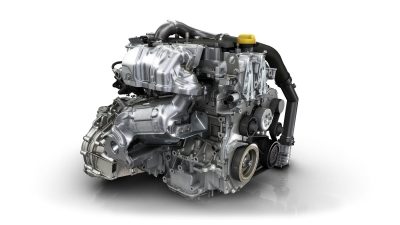
Energy TCe 115
Renault's first turbocharged, direct-injection petrol engine – the Energy 1.2-litre TCe 115 – is particularly responsive. Thanks to peak torque of 190 Nm, a figure worthy of a two-litre power train and available from as low as 1,750 rpm, the Energy TCe 115 delivers the acceleration and mid-range response expected of a 1.6-litre engine.
This has been made possible thanks to a range of new technologies, some of which come from the world of F1:
'Square' engine architecture: takes up less space yet delivers the same performance.
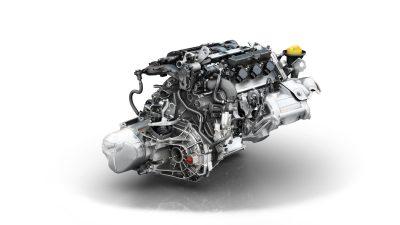
Energy TCe 90
The Energy TCe 90 engine is the first three-cylinder turbo petrol engine developed by Renault. It boasts the best driving enjoyment/fuel economy equation on the market and its user cost is reduced. The Energy TCe 90 will be launched in the future Clio and will gradually replace the current TCe 100, without sacrificing driving pleasure despite its 25 per cent reduction in cubic capacity.
Our engineers took full advantage of the new three cylinder engine architecture to achieve an optimum air-fuel ratio on the Energy TCe 90 unit, even at peak power (from 2,000 to 4,000rpm), in order to bring down fuel consumption in all driving conditions.
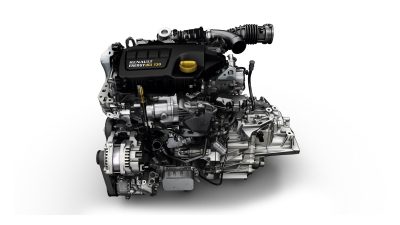
Energy dCi 160
This 1,598cc block delivers 160 hp and a generous 380 Nm of torque, which catapults it into the domain of 2-litre engines in terms of performance.
The use of 'Twin Turbo' technology for this diesel engine ensures a blend of low-end torque and high power at higher revs, the obvious knock-on effect of which is enhanced driving enjoyment. This important breakthrough also provides fuel consumption and CO2 emissions savings of 25%.
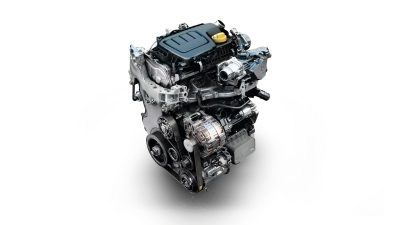
Energy dCi 130
The Energy dCi 130 engine is a high-tech package derived from Renault's F1 experience. This 1.6-litre Diesel engine is the highest performer in its category. Developed within the framework of the Alliance, the newcomer's performance credentials are similar to those of its predecessor, the 1.9 dCi 130 engine. This 1.6-litre power plant delivers peak power of 96kW (130 hp) and generous torque of 320 Nm available across a broad rev-band.
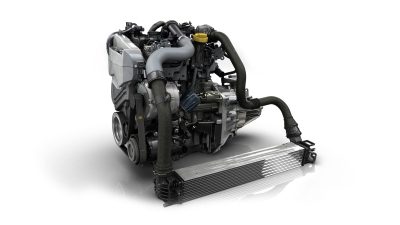
Energy dCi 110
Renault's mid-range engine, the 1.5 dCi, powers one in three of the brand's vehicles and is a real jewel of technological brilliance. Its evolutions compared to the 1.5 dCi engine are: a turbo charger architecture, an individualised spray cone angle and reduced friction, as well as a carryover of the Energy dCi 130's 'technology package'.
The more precise spray pattern significantly improves combustion performance (15 percent less unburned fuel), which in turn has a beneficial effect on fuel consumption and CO2 emissions*.


